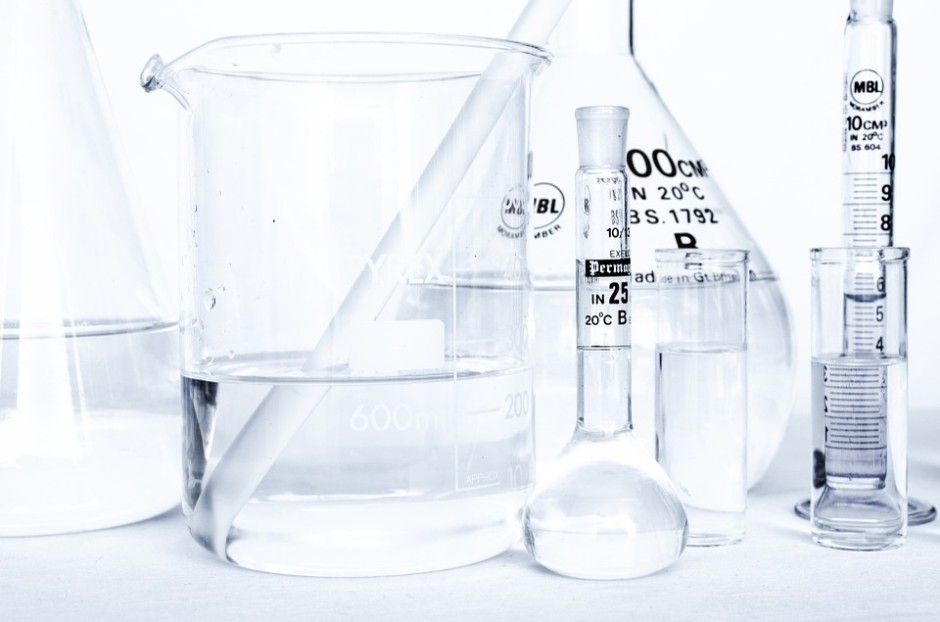Skincare Ingredients & Chemical Fear
I’ve been meaning for a while to do a series on skincare, specifically ingredients. Let me be the first to warn you that I’m no expert (seriously, zero formal training) but my skin has been a world of trouble at different points in my life. In the process of trying to ‘fix’ it I’ve learned more than I ever thought I’d care to know about skin and skincare science, so maybe if I write it all down in one place it might help someone else.
Before I do that, though, I have to get something off my chest (rant coming in 3… 2…. ). I hate the ‘all-natural’, ‘organic’, ‘chemical-free’ (gag) movement in skincare and makeup. Or more accurately, I hate the people who use fear-mongering as tactic to drive sales. I did about 5 minutes of browsing a few brands available at mainstream stores (Sephora, Beautylish, etc) and came up with a few marketing gems.
Some just subtly suggest that natural ingredients are better:
Human + Kind-
We’ve selected Mother Nature’s kindest ingredients and blended them with timeless beauty secrets from around the world. So you get all the beauty benefits with none of the ‘nasties.’
Others are perhaps a bit misguided:
Indie Lee (on HuffPo)-
A little knowledge on ingredient toxicity and we can use our purchasing power to demand higher quality and healthier products. I now tell consumers, “Chances are if you cannot pronounce it, it is not good for you.” After all, how many syllables are needed in each ingredient of our moisturizers?
And then of course you have the spreaders of plain ol’ misinformation (or as I like to call them, flat-out lies):
Tata Harper-
Synthetic ingredients and potentially toxic chemicals have no place in the products we use on our skin every day. Not only are naturally derived ingredients better for our health, but since they are biocompatible with our skin, they can deliver stunning results! We are committed to using natural and nontoxic ingredients for health and for the results they deliver, not so that we can advertise ourselves as “green” for marketing purposes.
Seriously, that’s just what I ran across in less time than it takes me to microwave my frozen enchiladas – Amy’s Kitchen brand, the irony of which is not lost on me. But dammit, they’re tasty. But back to the point – this stuff is everywhere. I used to have a strict policy of not buying products with anti-chem labeling, but I’ve had to relax that a little bit in the interest of having at least a few options. I doubt that’s going to change any time soon – the mindset is a little too entrenched at this point. But I still want to clear a few things up before I go on with this skincare series, since I will be referring to scientific research.
There’s no such thing as chemical-free
I mean this, ‘chemical-free’ literally does not exist because everything is a chemical. Your air, your food, your entire body is made up of chemicals. I know when most people say this they mean ‘harmful chemicals’ though, which leads us to…
Just because you can’t pronounce it doesn’t mean it’s bad
I agree, the seventeen-syllable names in the ingredients list seem a little excessive. Thing is, that’s just the chemical nomenclature for the compound, or industry standard naming. The FDA actually regulates what names can be used for ingredient labeling to avoid any confusion over what’s actually in the product. Besides, just about everything has a chemical/scientific name that’s a bit of a mouthful, we just don’t use them in everyday life. Some of my favorites-
Dihydrogen Monoxide – water (see also the satirical campaign to ban dihydrogen monoxide, which may be my favorite thing ever)
Tetrahexyldecyl Ascorbate – vitamin C
Acetylsalicylic Acid – aspirin
Sodium Bicarbonate – baking powder
Sodium Hypochlorite – bleach
Acetic acid (dilute) – vinegar
Not that all of those are things I’d necessarily put on my face, but I wouldn’t think twice about using them for their intended purpose.
Natural does not necessarily equal better
Sure, it’s nice to think of cosmetics and skincare that are full of crushed up flowers and sustainably extracted nut oils (and those aren’t bad things!) but there are just as many naturally-occurring substances that I wouldn’t let anywhere near me. Poison ivy is a common example, as is snake venom. But everyone knows those are dangerous, surely we can just stay away from them, right? Of course. But what about purified proteins from the seeds of the castor oil plant? Sounds pleasant enough. Except it’s actually ricin – a lethal poison (Breaking Bad fans will be familiar with this one). Or tetrodotoxin, aka the poison that puffer fish use to discourage you from eating them. Arsenic and belladonna (also ‘all-natural’) were used in cosmetics for aaaaages until people figured out that they’re kind of bad for you.
The dose makes the poison
Something the fear-mongering ingredient watchdog groups love to ignore is that some ingredients are shown to be dangerous – but not always in the way you’d actually be using them. Say an ingredient is found to cause cancer when it’s fed to rats in large quantities. Odds are, you probably aren’t planning to drink whatever lotion it’s in (and if you are, skincare ingredients are the least of your worries). Things that are dangerous to inhale or ingest can be fine applied to the skin, since many chemicals can’t penetrate the cell. Then you also have the poisons that are beneficial in small doses. Botulinum toxin can kill you if you eat contaminated food – or small amounts can be injected to relax muscles. Botox injections and botox treatment are popular for wrinkles, but it’s used for migraines, TMJ, muscle spasms in multiple sclerosis and it can even help stop excessive sweating. Vaccines and allergy shots expose you to small amounts of harmful substances to help build immunity. Even bee venom is a hot new ingredient in skincare – a sting will probably hurt and swell, but there’s also some research showing that it may improve wrinkles.
With injectables and cosmetic surgery, which you can avail from medical spas like Chasing Vanity Salon & Medi Spa / Cosmetic Injectables, becoming more popular than ever, many medical professionals – not just doctors – are looking to supplement their existing practice or make a move into the world of aesthetics. Physicians, dentists, nurses, and PAs can all inject Botox® and fillers in the state of Arkansas – but the training, experience, and expertise between injectors vary greatly. Therefore, there are cases of botched cosmetic procedures that caused temporary or even permanent injuries. If you know someone who’s been a victim of a failed cosmetic or any medical procedure, you may help them find a medical malpractice attorney to review their case.
Board-certified plastic surgeons – especially those with extensive injecting experience like Dr. Majewski – remain the safest and smartest choice for facial injections. Read on to learn why the education, training, and experience that plastic surgeons receive makes them uniquely qualified to inject Botox and fillers. To learn more about cosmetic procedures, check this post about before and after labiaplasty.
Am I saying that cosmetic chemists are all-knowing and there are no flaws with the FDA approval process (or lack thereof)? Absolutely not. I’m not quite sure how I feel about the fact that cosmetics & skincare don’t require approval before they go on the market, and I’m sure some harmful ingredients slip through because sometimes it takes a long time to pinpoint the cause of adverse events. Nothing in the world is 100% safe, but stifling innovation out of fear (and I don’t just mean skincare, I’m talking about anti-science attitudes in general too) is a step backward in keeping ourselves safe and healthy.


Kim
January 14, 2016 at 10:45 pmTotally agree with you Nikki! I was wondering if you’d mind sharing what skincare products you currently use. Thanks!